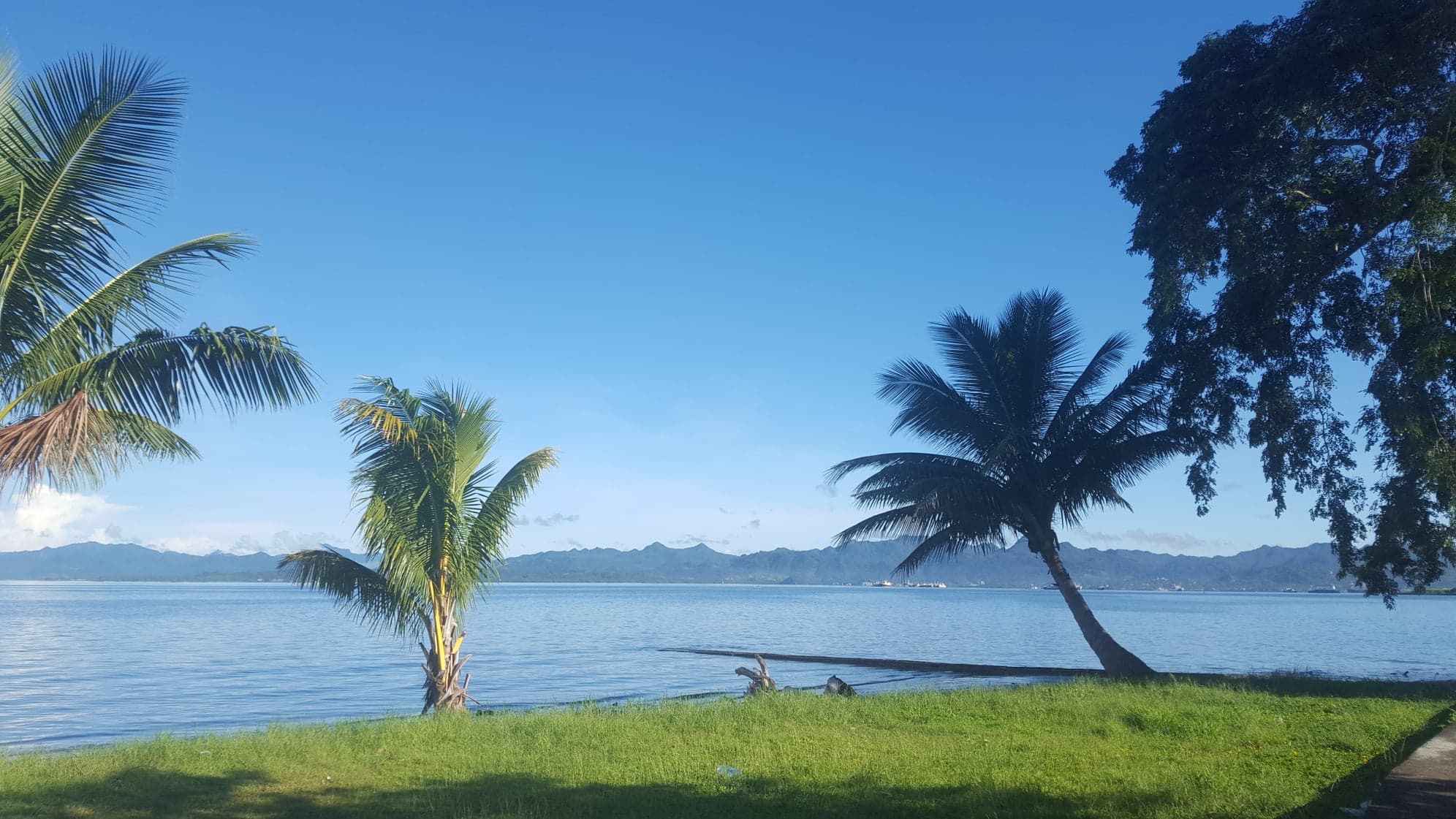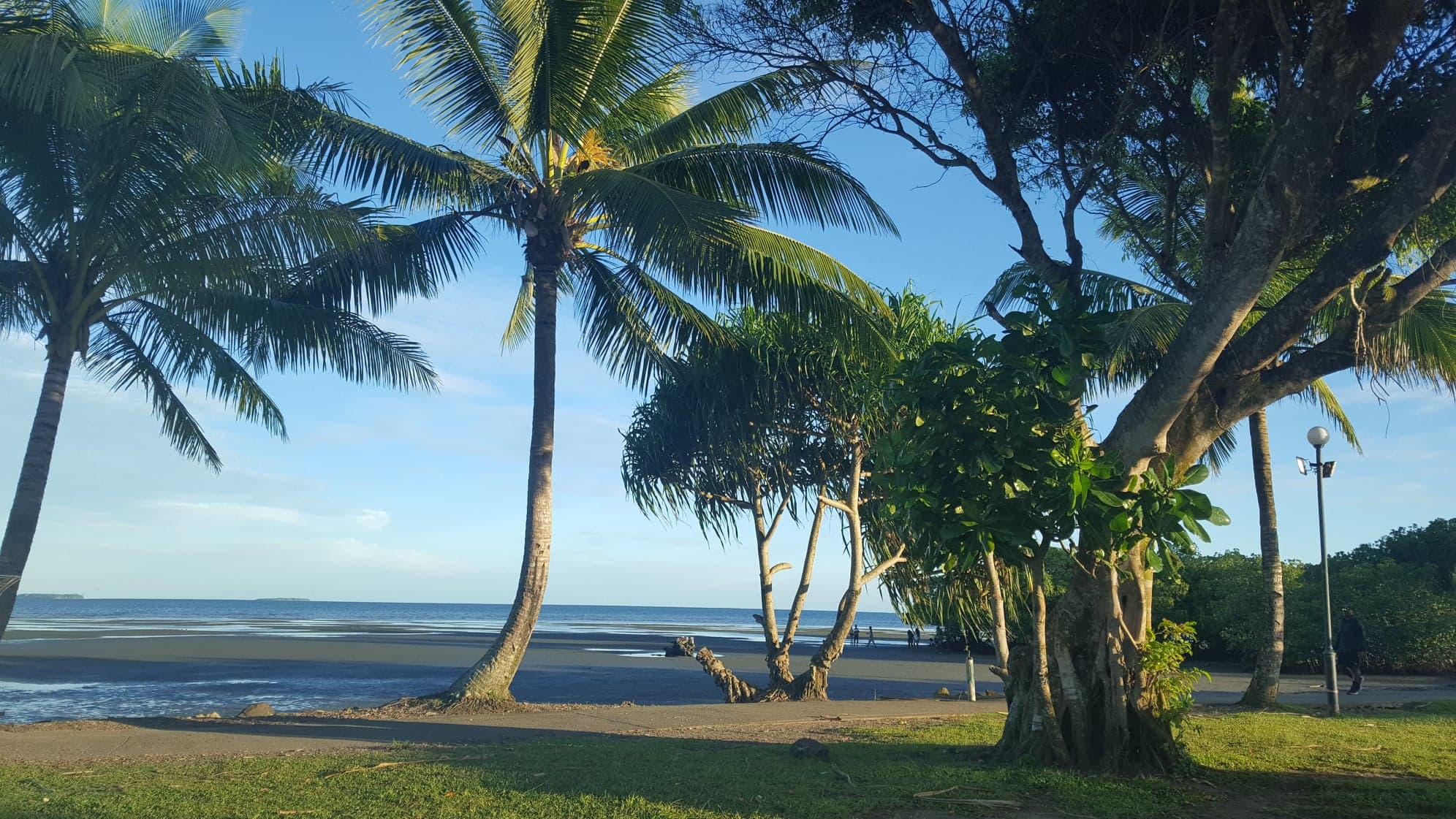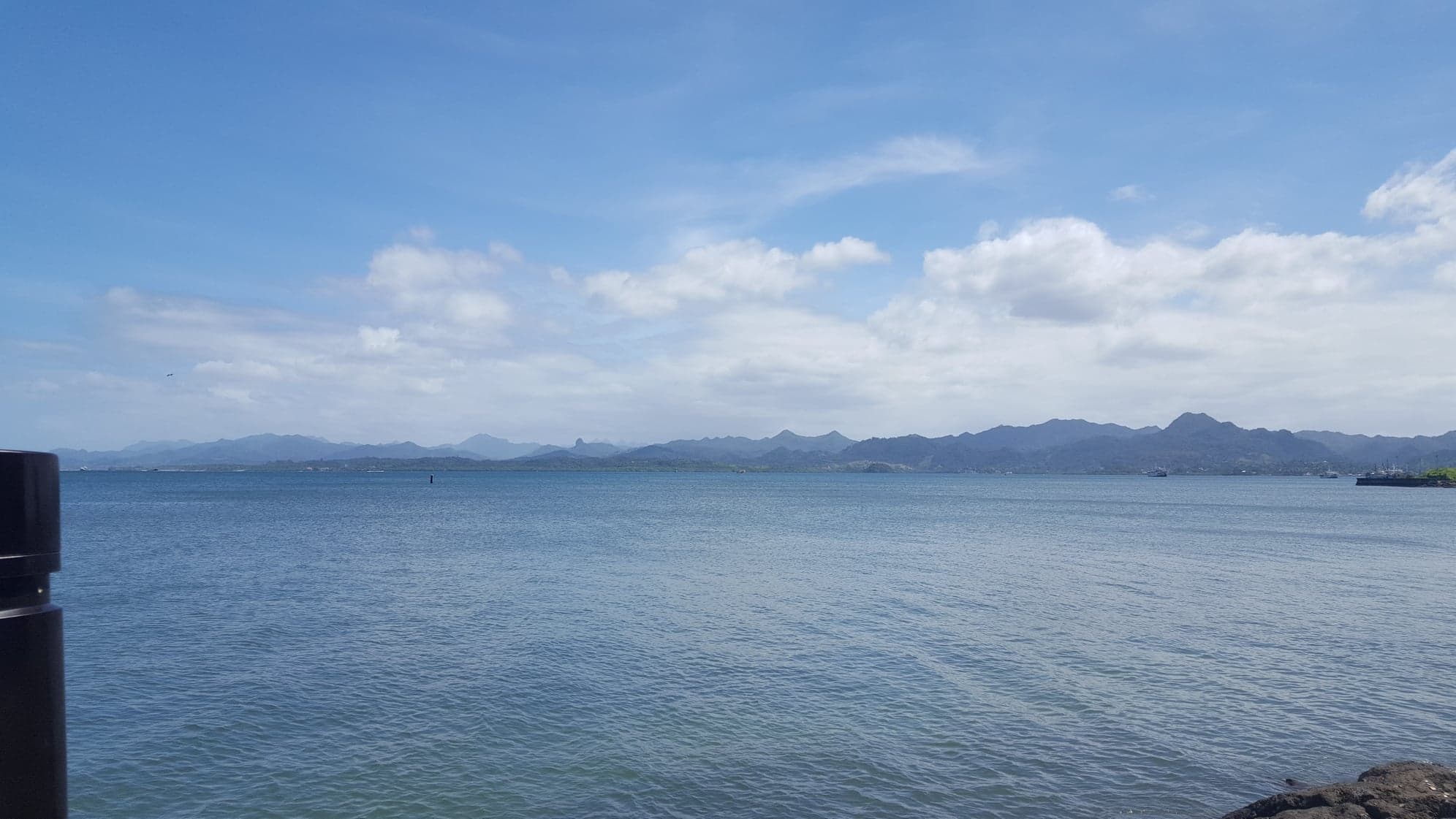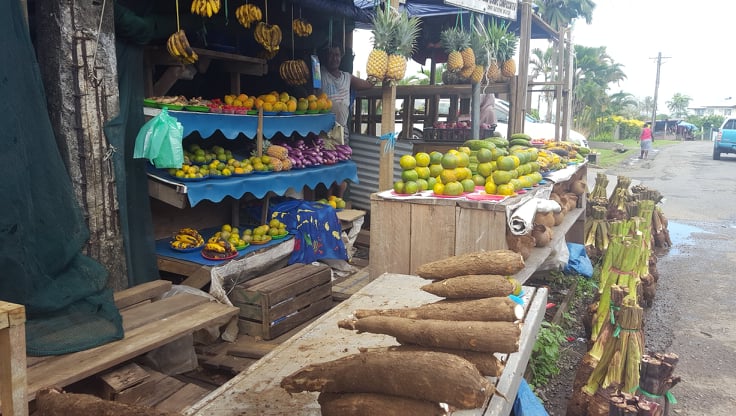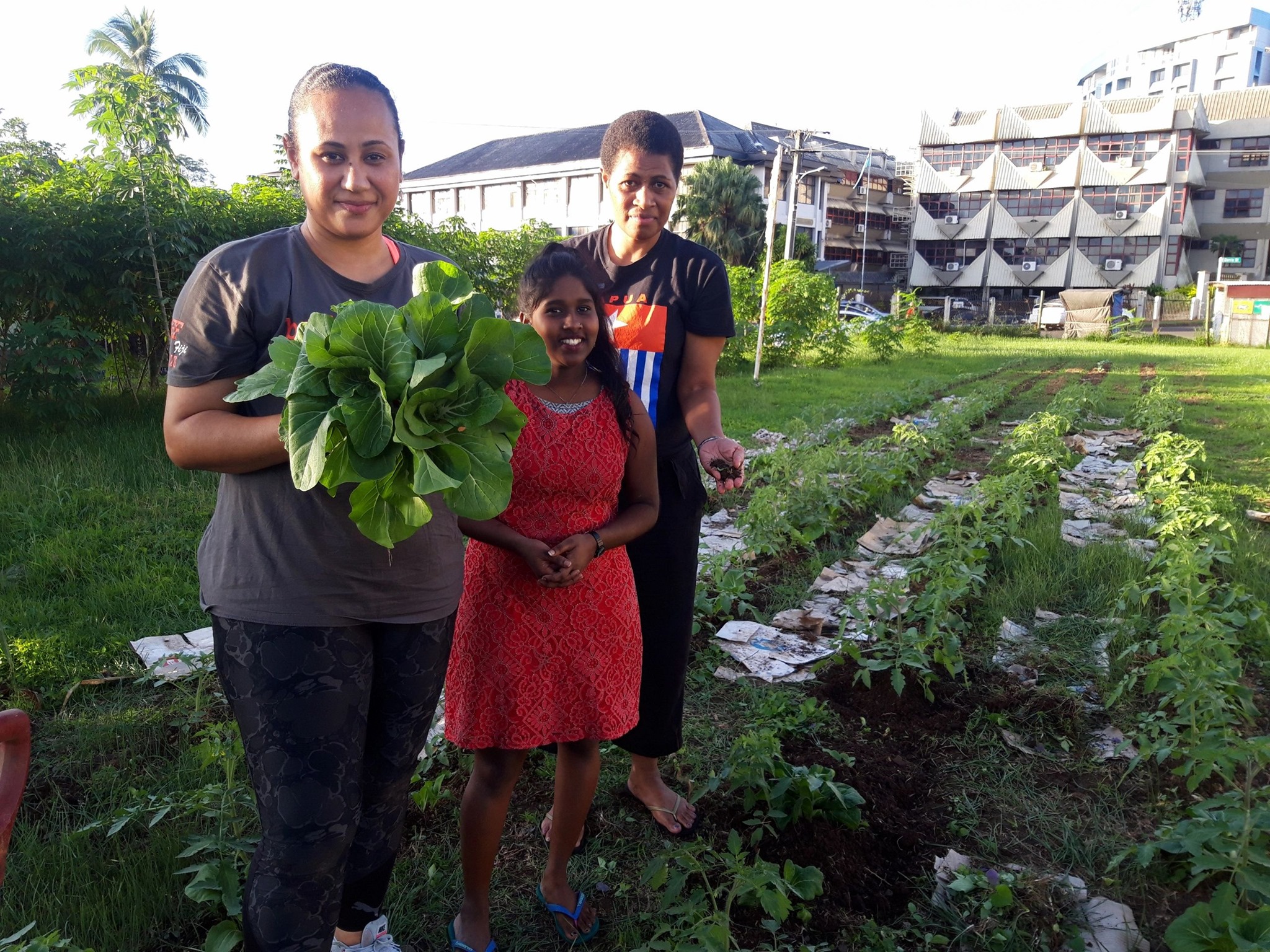A Letter from Hery Ramambasoa, Regional Liaison for Southeast Asia and the Pacific, based in Fiji
Spring 2021
Write to Hery Ramambasoa
Individuals: Give online to E200493 for Hery Ramambasoa’s sending and support
Congregations: Give to D507595 for Hery Ramambasoa’s sending and support
Churches are asked to send donations through your congregation’s normal receiving site (this is usually your presbytery)
Subscribe to my co-worker letters
Dear friends,
“You live in a postcard,” family and friends ironically teased me when I first moved to work in the Pacific islands, and, to tell you the truth, I frankly do. The breeze caressing humble coastal dwellings, the swell rocking outrigger canoes, a festival of colors surprises the eyes every minute. The motion of the fishermen embracing the rolling of the waves says it all about their ancient culture. For eighteen months, when all countries of the world hold out against the COVID-19 pandemic, the islanders stood out impassively. According to the World Health Organization, 12 of the 14 countries, which reported no COVID cases in April 2021, were Pacific and Atlantic Ocean islands.
This Hollywood-like ambiance came to a sudden end. In March 2020, big airline companies abruptly halted their flights to these small countries whose sources of income rely heavily on tourism. Governments closed their borders. Nobody was prepared. Across the region, tourism has created at least 150,000 jobs and as many ancillary activities. People were more concerned about economic survival than the pandemic. Overnight, staff was reduced by half and more as the weeks went by—the fear of being completely laid-off ruined morale. Small businesses will certainly go out of business. Janitors and other unskilled employees who worked at holiday resorts went back to stay with families in their town or village of origin as they knew the situation would not end soon.
Governments organized relief packages, but these solutions will never replace a regular income. Hints of solidarity were arranged amongst the extended family: household sizes swelled to host siblings and x-degree cousins. One family told me that their women improvised the street-vending of snacks, but, after three weeks, passers-by did not have any more cash to buy from them. Avind, a laid-off receptionist and part-time student, showed me his house. Before, he lived in it by himself. Now nine people live with him. He is joined by former colleagues and fellow students in a 270 sq ft one-room corrugated tin house, suffocating between heat and humidity. “I was about to rent a more decent housing this year,” he said. Behind the selfies in the hammocks and the multicolored cocktails, hundreds of little hands and anonymous homes subsist on the vacations of others.Economists boasted that Fiji has had ten consecutive years of growth, that the yearly flux of tourists outnumbered the inhabitants, but everything collapsed in the blink of an eye because of an unexpected viral contamination. Right-thinking circles are talking about economic recovery almost shamelessly. “I thought I was out of poverty,” Avind said. “Now I have to pass the hat.” People’s first reflexes were to turn to the universal values of the family and the ancestral reminiscence of traditional solidarity. Still, these were not functional in a world dominated by the rules of the market. It is high time to re-think a more sustainable growth model, but on what grounds?
A couple of years before the pandemic, small projects of family gardening drew my attention. Unlike many islands in the region, Fiji has fertile soil and quite important arable land, while some of its neighbors have lost the last slots to grow vegetables to the rising sea level and salinization of very scarce water sources. Sadly, for them, food comes from cans and plastic bottles. The Food Bank project of the Pacific Conference of Churches (PCC), a global partner of the PC(USA), went a mile ahead by advocating Care for the Creation, Food Security, Alternative Consumerism, and Sustainable Use of Energy. Situated in the heart of the city of Suva, right across the government buildings, the PCC transformed its backyard into a vegetable garden which challenged urban passers-by to review their opinions about a return to Mother Earth. The harvest coincided with the drawbacks of the pandemic lockdown. The Food Bank provided vegetables and root crops for lunch to some 30 students during the first three months allowing those children to continue to go to school. Destitute residents of elderly homes in other areas of the city also benefited from the harvest. The project developed the planting of vegetables in boxes and other containers where space is limited. This initiative rolled out to Tonga, Vanuatu, and the Solomon Islands, where churches assist families and the community in re-thinking their subsistence models in this period of pandemic. The Food Bank Project is a strand of the Green Church Model that the Conference has been promoting for the past few years with member churches around the region. Speaking about the prophetic role, the churches propose real down-to-earth solutions. This project is supported by the PC(USA) with grants that resemble a mustard seed compared to the billions invested in the tourism and hospitality industry.
In May 2021, the bubble exploded. There are now dozens of community cases in the Suva area. We practiced strict social distancing and wearing masks for the first time. Border cases have spread into communities and could seriously threaten a fragile health system. Realities are sobering for businesses, and the planned recovery is delayed indefinitely, while in the USA and neighboring Australia, restrictions are easing.
Nevertheless, churches in the Pacific are leading the community to re-think the dependencies that alienated its people and their livelihood. In the New Normal, alternative models of tourism that curbs traditional patterns of consumerism are welcomed. They should restore the dignity of workers since they are created in the image of God. Pacific islanders must come to terms with the whole of Creation which has always defined their identities but of which they have been forcibly deprived, to satisfy other interests. From now on, the back of my postcards will narrate my encounters with the real Pacific.
Hery Ramambasoa
![]() You may freely reuse and distribute this article in its entirety for non-commercial purposes in any medium. Please include author attribution, photography credits, and a link to the original article. This work is licensed under a Creative Commons Attribution-NonCommercial-NoDeratives 4.0 International License.
You may freely reuse and distribute this article in its entirety for non-commercial purposes in any medium. Please include author attribution, photography credits, and a link to the original article. This work is licensed under a Creative Commons Attribution-NonCommercial-NoDeratives 4.0 International License.
Tags: Alternative Consumerism, ancestral traditional solidarity, Care for the Creation, family gardening The Food Bank project of the Pacific Conference of Churches (PCC), food security, governments relief packages, Green Church Model, Pacific islands, poverty, small businesses, Solomon Islands, sustainable growth model, Sustainable Use of Energy. Mother Earth, Suva, Tonga, Vanuatu, World Health Organization
